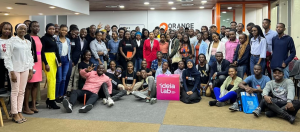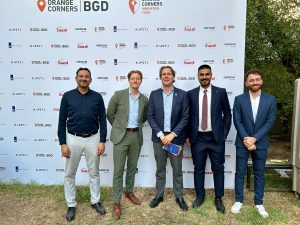Our vision is to feed the population while preserving the environment for the generations to come.
During the summer of 2019, the logistician Aka A. Ange Roland came across tiny bundles of oyster mushrooms in Bingerville, 10 kilometres east of Abidjan, the capital of Ivory Coast. Only two years after this discovery, with the support of the OCIF programme his startup Ivoire Myciculture has become one of the leading mushroom production and marketing companies in Ivory Coast. He produces over 2000 kg of mushrooms each month in his 250 square meter production and storage facility. OCHQ asked Ange to explain us more.
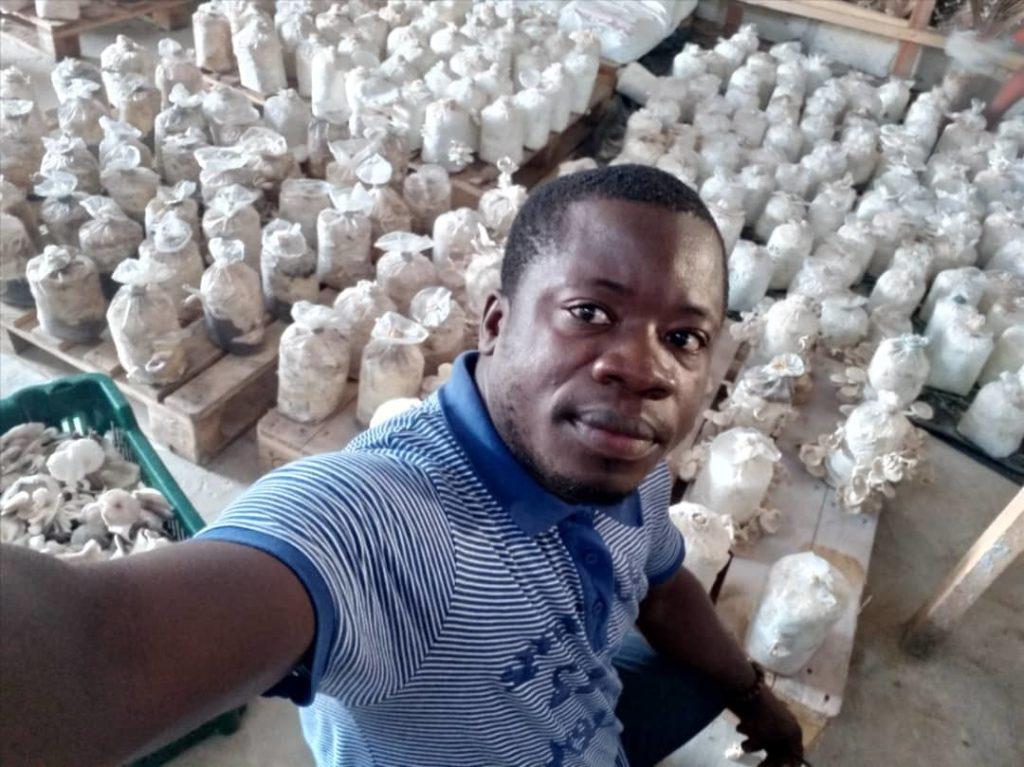
What does Ivoire Myciculture stand for?
“Via Ivoire Myciculture, we try to create a “Mushroom culture” in Bingerville that runs all year around. Myciculture is the cultivation of edible mushrooms. Mushrooms are eaten in high quantities by the Ivorian population. The plant contains a lot of vitamin D, a high dose of protein, as well as vitamins B2, B3 and B5. With these nutrients, our bodies are more resilient against (winter) depression, but also strengthens our bones, boost our immune system and help the creation and protection of a healthy skin.”
Why the name, Ivoire myciculture?
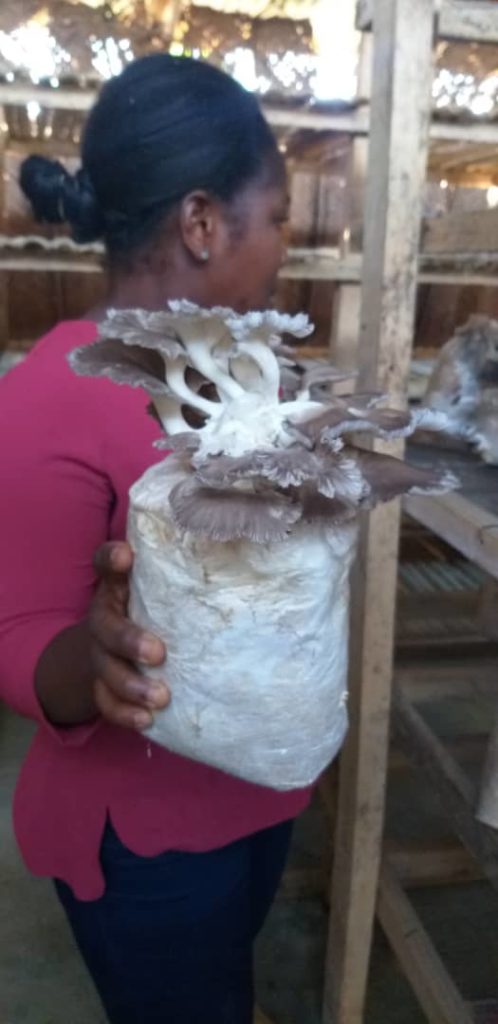
“It was only when we entered the Orange Corners programme that we first started to think about our name. Fungiculture or myciculture is the cultivation of edible mushrooms. In Ivory Coast there is a lot of demand for mushrooms but the only season that it is sold is between October and February. Due to our techniques, we know how to cultivate oyster mushrooms all year around. Our startup produces oyster mushrooms to fill the gap on the Ivorian market. That’s why we chose the combination of Ivory and Myciculture. In two years, we need to change the name as we won’t be only selling in Ivory Coast anymore, but throughout the rest of Africa!”
Vitamins B2, B3 and B5 make our bodies more resilient against (winter) depressions, but also strengthens our bones, boost our immune system and help the creation and protection of a healthy skin.
What are your ambitions regarding your startup’s continuation?
“We are a team of three: 1 for production, 1 for marketing, 1 for prospecting. In five years, we not only have multiplied our production by ten, but have also integrated females and youth in our value and production chain. In the upcoming years, we will focus on making our startup more inclusive and expand our production, having our own laboratory to do research on different types of mushrooms, and also, educate our population on the benefits of mushrooms! Then, we hope to export our products to the rest of Africa and afterwards, to the rest of the world!”
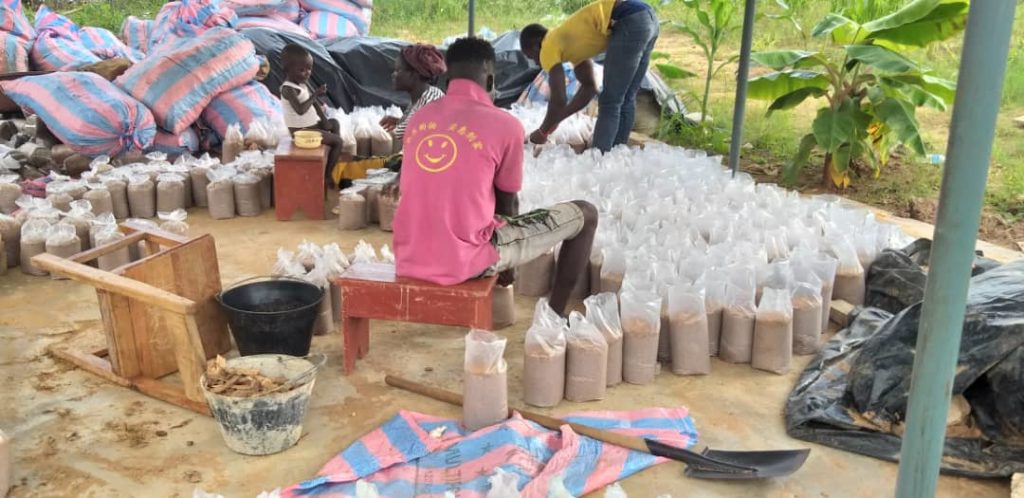
Could you tell us more about the social aspect of your startup?
“Our startup is besides an agricultural startup also a social company. This has to do with the fact that we contribute to a circular economy. Our own post-production waste is recycled into organic fertilizer, in an attempt to defeat global warming, promote a responsible production method and contribute to the economic growth of Ivory Coast.”
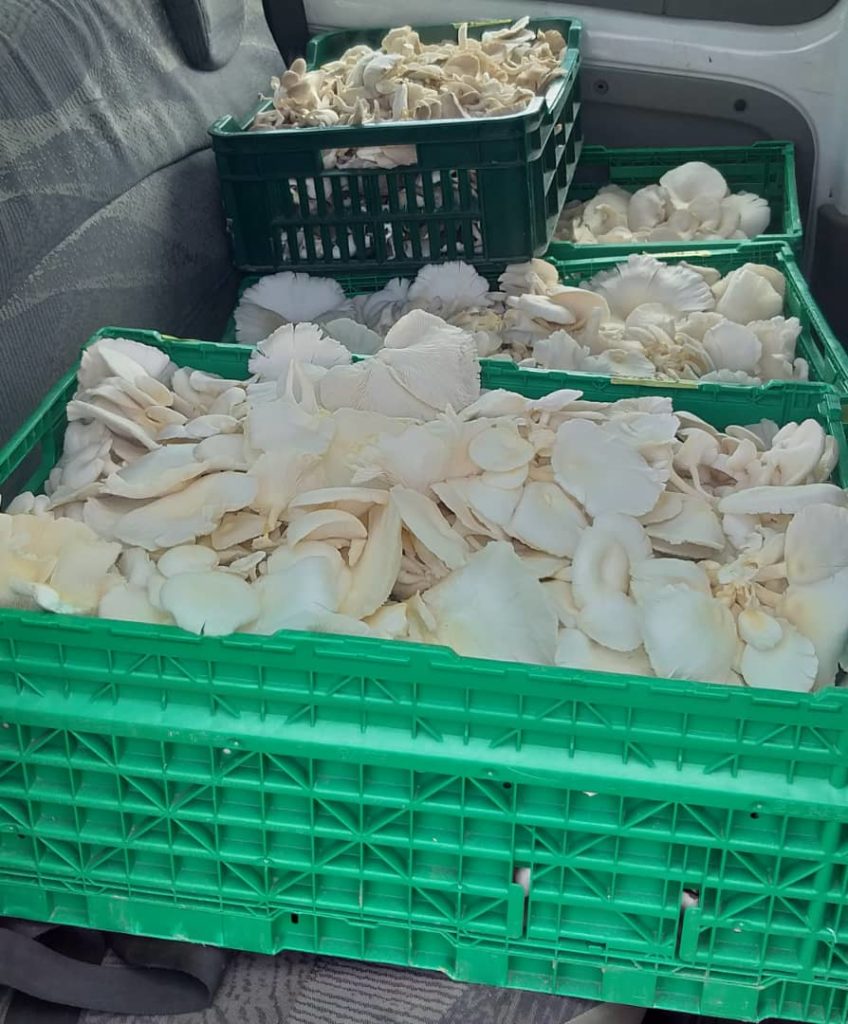
What are Ivoire Myciculture’s objectives?
“First and foremost, we hope to meet the food consumption needs of the population. Our goal is to foster the health benefits of the oysters’ mushrooms, making it available and consumer ready in our region. We aim to raise awareness on the benefits of the mushrooms through our initiative. Finally, we hope to help the future generations to come to consume healthy food, improving food safety, reduce industrial production and create more jobs.”
All you need is a strong focus and vision, some courage and motivation. Surround yourself with people that encourage you and stay focused.
What are some of your startup’s strengths and weaknesses?
“We really don’t have any difficulties with selling the mushrooms we produce. There is such so much demand for this vegetable, from big hotels to supermarkets, individuals to Asian restaurants, such as Vietnamese, Japanese and Chinese. The biggest struggles are the spores itself, the raw material from which mushrooms grow. We still rely on suppliers to get the spores, but we hope to become more and more independent in the upcoming years. Nevertheless, it requires investments to create a laboratory. Not having enough financial resources right now, we take our time and do it in our own pace.
Our strengths are our production techniques and practices that other rivalries don’t have. We have the equipment, tools and knowledge that underpins our production. We hope to keep improving the techniques we have through trainings, and the OCIF really helped us, as we now have a larger budget than before and can do more. Therefore, we can have a bigger impact within our local community and economy!”
Our startup produces oyster mushrooms to fill the gap on the Ivorian market.
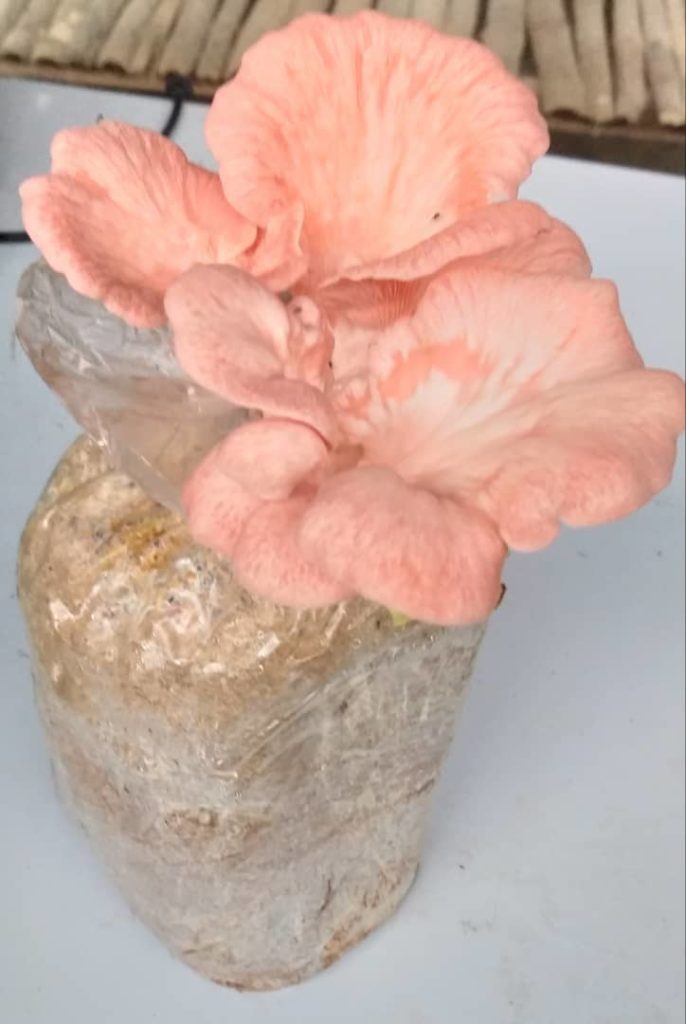
Could you tell us a bit more about the OCIF programme?
“Before OCIF it was very difficult to create an official startup. Having a startup was just a dream in our heads. Then we received $40.000 through the OCIF programme. Without the OCIF programme our startup wouldn’t be here. This funding really helped us to bring our business to a professional level. We would like to thank Orange Corners infinitely for the opportunity to make our startup ambitions come true.
We also learned through the OC trainings how to develop a client portfolio, how to conduct market research, how to conquer the region in order to become a leader in Myciculture in Ivory Coast. Our next project: a laboratory that can help us with increasing our profits! ”
What advice would you give other individuals that aspire to build a startup?
“Don’t think it is easy to launch a startup. It is hard. But my advice would be: if you have a project in mind, don’t think about giving up. All you need is a strong focus and vision, some courage and motivation. Surround yourself with people that encourage you and stay focused. That is the only way to go forward, for you and your startup.
Don’t forget to identify the needs and customer expectations before you start and above all have training to gain a better understanding of how to innovate, develop and expand.”
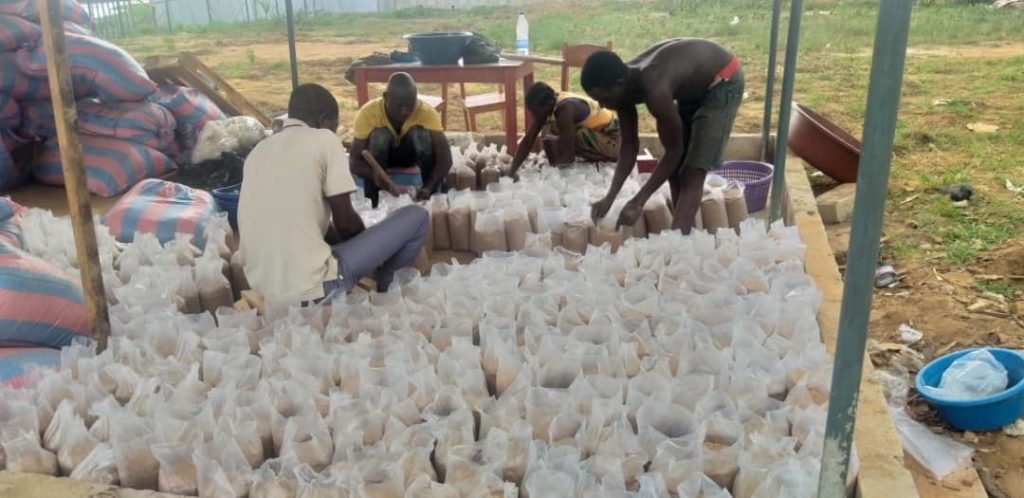
We learned through the OC trainings how to develop a client portfolio, how to conduct market research, how to conquer the region in order to become a leader in Myciculture in Ivory Coast!
Find out more about Ange Aka’s startup on Facebook!



